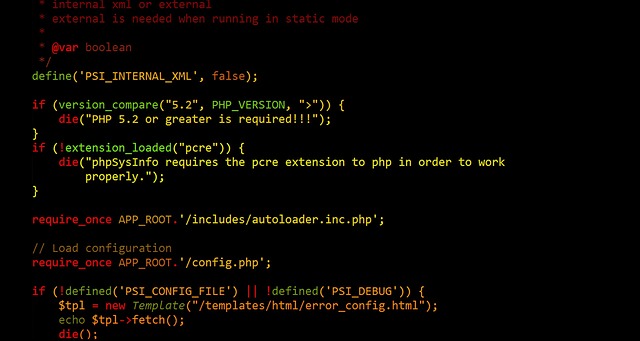The importance of translating the UK Code of Conduct and Ethics into multiple languages for global businesses is highlighted as critical for maintaining ethical compliance and effective governance. This process ensures that all employees, regardless of language or location, understand a company's ethical expectations. Professional translation services specializing in the UK Code of Conduct and Ethics are essential to accurately convey these guidelines across different cultures, mitigating misunderstandings and ensuring consistency and trust among stakeholders worldwide. By using such services, companies demonstrate their commitment to global standards of integrity and transparency, reinforcing their ethical standing on an international level. The section emphasizes that the translation of ethical codes requires not only linguistic accuracy but also a deep understanding of cultural nuances to preserve the principles' original intent. This approach is vital for multinational corporations operating in diverse cultural landscapes to foster trust and adherence to ethical practices, supporting their reputation and legal compliance in different regions.
Global business operations necessitate clear and consistent communication, a cornerstone of which is the understanding and application of corporate codes of ethics across diverse cultural landscapes. As companies expand their reach, the importance of translating these ethical frameworks becomes paramount, ensuring all stakeholders share a common moral ground. This article delves into the significance of translating the UK Code of Conduct and Ethics, explores the pivotal role of translation services in global business communication, and outlines the challenges and best practices involved in this process. Through a case study examining a successful translation by professional services, we’ll see how language expertise can foster global trust and compliance, integral to maintaining ethical integrity in an international context.
- Understanding the Importance of Corporate Codes of Ethics Translation
- The Role of Translation Services in Global Business Communication
- An Overview of the UK Code of Conduct and Ethics
- Challenges in Translating Ethical Guidelines Across Cultures
- Best Practices for Translating Corporate Codes of Ethics
- Case Study: Successful UK Code of Conduct and Ethics Translation by Professional Services
- Leveraging Language Expertise to Foster Global Trust and Compliance
Understanding the Importance of Corporate Codes of Ethics Translation

In an increasingly globalized business environment, the relevance of corporate codes of ethics transcends linguistic barriers. For multinational corporations with a diverse workforce and international operations, translating the UK Code of Conduct and Ethics is not merely a courtesy but a critical component of effective governance and ethical compliance. Such translations ensure that every employee, regardless of their location or language, can comprehend the ethical standards and conduct expectations set forth by the company. This understanding fosters a consistent corporate culture across different regions, aligning all employees with the organization’s values and principles. Moreover, it mitigates risks associated with misunderstandings or misinterpretations that could arise from cultural differences or language nuances. Utilizing professional UK Code of Conduct and Ethics translation services can navigate these complexities, providing a clear and accurate rendition of ethical guidelines in various languages. This not only demonstrates the company’s commitment to global responsibility but also enhances communication, transparency, and trust among stakeholders, thereby upholding the integrity of the corporation on an international scale.
The Role of Translation Services in Global Business Communication

In an era where businesses operate on a global scale, the importance of clear and consistent communication cannot be overstated. The UK Code of Conduct and Ethics, embodying the principles of integrity, respect, and responsibility, serves as a critical framework for guiding corporate behavior. To ensure that these ethical standards are effectively communicated and upheld across different regions and languages, translation services play a pivotal role. Professional translation services specializing in UK Code of Conduct and Ethics translation are indispensable, as they facilitate the accurate representation of these guidelines in various languages. This not only helps in maintaining consistency in ethical practices but also fosters trust among stakeholders, including employees, clients, and partners, who may come from diverse linguistic backgrounds. By leveraging the expertise of these services, businesses can navigate cultural nuances and ensure that their message is conveyed with precision and clarity, thereby upholding their commitment to ethical standards worldwide. The ability to accurately translate corporate codes of ethics into multiple languages is a testament to a company’s dedication to inclusivity and global accountability. As such, businesses must recognize the strategic importance of investing in high-quality UK Code of Conduct and Ethics translation services to effectively communicate their values across borders.
An Overview of the UK Code of Conduct and Ethics

Challenges in Translating Ethical Guidelines Across Cultures

When corporations operate on a global scale, effectively communicating ethical guidelines across different cultures presents significant challenges. The UK Code of Conduct and Ethics translation services play a pivotal role in this process, as they must navigate linguistic nuances and cultural sensitivities to ensure that the core principles of ethics are accurately conveyed. A direct translation from one language to another often fails to account for local customs, idiomatic expressions, and societal values that can drastically alter the interpretation of ethical guidelines. For instance, what is considered a straightforward statement in English regarding conflict of interest may not resonate similarly in a culture where relationships and social context play a more prominent role in business interactions. This underscores the necessity for skilled translators who are not only fluent in both the source and target languages but also well-versed in cross-cultural communication and ethics. These professionals must ensure that the translation does not merely reflect the words but also the intent behind the UK Code of Conduct and Ethics, thereby upholding its integrity and applicability within diverse cultural contexts. The process is complex and requires a deep understanding of both the home and host cultures to avoid miscommunication or unintended offense, which could lead to legal complications or damage the company’s reputation abroad. As such, the role of UK Code of Conduct and Ethics translation services is indispensable in facilitating global corporate responsibility and fostering an environment where ethical standards are upheld across all operations.
Best Practices for Translating Corporate Codes of Ethics

In an increasingly globalized business environment, the necessity for clear and accurate translations of corporate codes of ethics is paramount to maintain consistency and integrity across different regions and cultures. Utilizing specialized UK Code of Conduct and Ethics translation services ensures that the ethical standards and principles of a company are faithfully conveyed in all languages involved. These services employ expert linguists who are not only proficient in language but also well-versed in corporate governance and ethics, allowing for a nuanced approach to translation. They understand that ethical codes often contain abstract concepts and complex terminology that require a deep grasp of both source and target language contexts. By adhering to best practices such as employing native speakers who are professionals in the field of business ethics, these services can produce translations that are not only linguistically accurate but also culturally appropriate, ensuring that the intended message is conveyed effectively and respectfully.
To achieve the highest quality translation, it is essential to follow a structured approach. This involves selecting translators with specialized knowledge in both ethics and the specific industry of the company, as well as using a collaborative approach where multiple experts review the translated text for both linguistic accuracy and adherence to ethical principles. Additionally, involving stakeholders from different departments within the company during the translation process can provide valuable insights into the practical implications of the translated code. This participatory method not only enhances the quality of the final document but also fosters a shared understanding of the company’s ethical stance among all employees, regardless of their location or language. Engaging UK Code of Conduct and Ethics translation services that adhere to these best practices is a strategic investment for any multinational organization aiming to communicate its values transparently across borders.
Case Study: Successful UK Code of Conduct and Ethics Translation by Professional Services

Within the realm of corporate governance, the UK Code of Conduct and Ethics serves as a cornerstone for ethical behavior and professional integrity. Its effectiveness is not confined to domestic audiences; its principles have garnered international attention, particularly among professional services firms seeking to align with global standards. A seminal case in point involves a leading UK-based professional services firm that expanded its operations to multiple countries. To ensure consistency in ethical practices across its diverse workforce and client base, the company turned to specialized translation services to localize the UK Code of Conduct and Ethics. This strategic move facilitated clear communication of the firm’s values and expectations, thereby promoting a culture of transparency and accountability. The translation process was meticulously executed, maintaining the original intent and ensuring that the nuances of ethical principles were accurately conveyed in various languages. As a result, employees from different cultural backgrounds could fully comprehend and adhere to the company’s ethical standards, fostering an environment where trust and integrity are upheld universally. This successful localization initiative underscores the importance of professional translation services in the global context, particularly for codes that are foundational to a company’s ethical framework. It demonstrates how translating the UK Code of Conduct and Ethics can enhance cross-cultural understanding and ensure that ethical guidelines are effectively integrated into the international operations of professional service firms.
Leveraging Language Expertise to Foster Global Trust and Compliance

In today’s globalized business environment, the UK Code of Conduct and Ethics serves as a cornerstone for corporate integrity and accountability. Translating this code into multiple languages is not merely a matter of semantics but a critical step in fostering trust and compliance across diverse markets. By engaging with language expertise that specializes in corporate governance translations, companies can effectively communicate their ethical standards to international stakeholders. This ensures that all employees, regardless of their location or linguistic background, understand the expectations and guidelines set forth by the organization. Such translations are pivotal in maintaining a consistent ethical framework, which is essential for upholding the company’s reputation and ensuring legal conformity in various jurisdictions.
Leveraging professional UK Code of Conduct and Ethics translation services goes beyond mere linguistic accuracy; it involves a deep understanding of cultural nuances that can affect the interpretation and application of ethical guidelines. This cultural contextualization is crucial, as it avoids misunderstandings and ensures that the code resonates with employees from different cultures. By doing so, companies can cultivate an environment of global trust, where employees feel confident in their understanding of ethical practices and are more likely to adhere to them, thereby promoting a culture of integrity and compliance that is indispensable for any international enterprise’s success.
In conclusion, the translation of corporate codes of ethics, such as the UK Code of Conduct and Ethics, is a critical step for global businesses aiming to foster trust, ensure compliance, and enhance communication across diverse cultures. The process not only requires linguistic precision but also a deep understanding of cultural nuances to maintain the integrity of ethical guidelines. Utilizing specialized translation services is pivotal in this endeavor, as evidenced by successful case studies that demonstrate the effectiveness of such translations in promoting ethical practices worldwide. By embracing best practices for translating these codes and leveraging language expertise, organizations can navigate the complexities of global business communication with confidence, thereby upholding their commitment to ethical standards across all operations.



